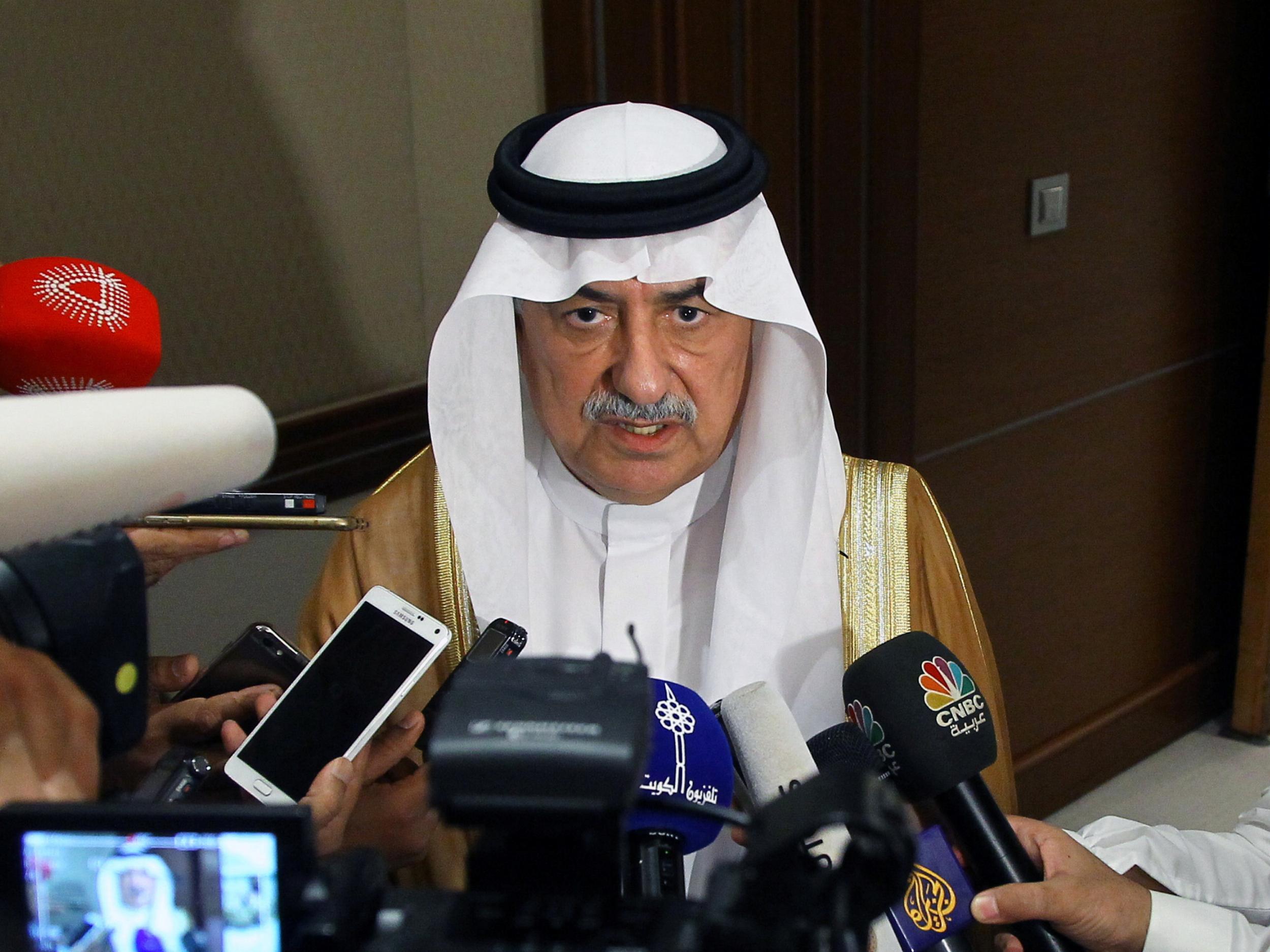Saudi Arabia sacks longstanding finance minister as kingdom grapples with lost oil revenue
Last vestige of late King Abdullah's economic team removed as austerity measures set in

Your support helps us to tell the story
From reproductive rights to climate change to Big Tech, The Independent is on the ground when the story is developing. Whether it's investigating the financials of Elon Musk's pro-Trump PAC or producing our latest documentary, 'The A Word', which shines a light on the American women fighting for reproductive rights, we know how important it is to parse out the facts from the messaging.
At such a critical moment in US history, we need reporters on the ground. Your donation allows us to keep sending journalists to speak to both sides of the story.
The Independent is trusted by Americans across the entire political spectrum. And unlike many other quality news outlets, we choose not to lock Americans out of our reporting and analysis with paywalls. We believe quality journalism should be available to everyone, paid for by those who can afford it.
Your support makes all the difference.Saudi Arabia has sacked its veteran finance minister as the kingdom attempts to transform its economy after a slump in the price of oil.
Ibrahim al-Assaf “has been removed from his position”, according to royal decree from King Salman, and replaced by Mohammed Aljadaan, head of the Capital Market Authority that regulates the stock market.
Mr Assaf’s sacking removes the last vestige of the late King Abdullah’s appointments from the country's economic team, although he will continue to serve elsewhere in the cabinet.
The 67-year-old had held the position since 1996 and was a close ally of the previous monarch, whose death prompted an overhaul of ministerial appointments, including the sacking of oil minister Ali al-Naimi.
The most recent removal of a senior figure comes as the kingdom is undergoing sweeping reform to wean itself from oil wealth and diversify its economy.
Since 2014, the global price of oil has been cut by about half. As the world’s biggest oil exporter, the country predicts an $87 billion (£71 billion) budget deficit this year.
With a war in Yemen raging, an expense that has placed further strain on Saudi finances, the Kingdom has spent its $180 billion (£147 billion) financial cushion and resorted to heavy borrowing.
In reaction, the Riyadh has imposed drastic austerity measures, which has send the broader economy into a rapid slowdown.
Public spending has been slashed, including cuts to subsidies and reductions in cabinet ministers’ salaries and major infrastructure projects have now been put off.
Additional austerity measures, including large scale privatisation, are expected to be brought in during the coming years, causing concern living standards will fall.
Mr Assaf was instrumental in high government spending prior to drop in the oil price. He said last week said Saudi Arabia's financial position remained strong despite plummeting oil prices, although he added there was “some pressure” on bank liquidity.
“We have been able to maintain a good position in public finances,” Mr Assaf said.
A barrel of oil is currently worth around $50 (£41) after it struck a 10-year low of less than $30 (£25) in January, down from a peak of more than $100 (£82) during 2014.
Join our commenting forum
Join thought-provoking conversations, follow other Independent readers and see their replies
Comments